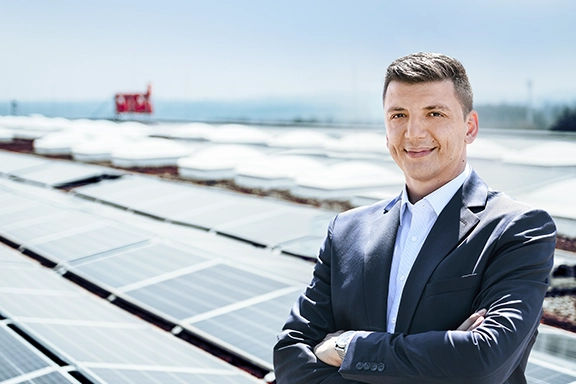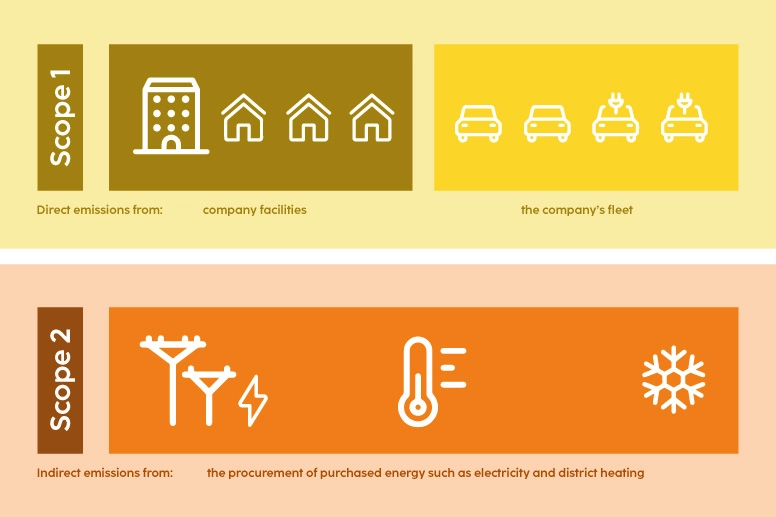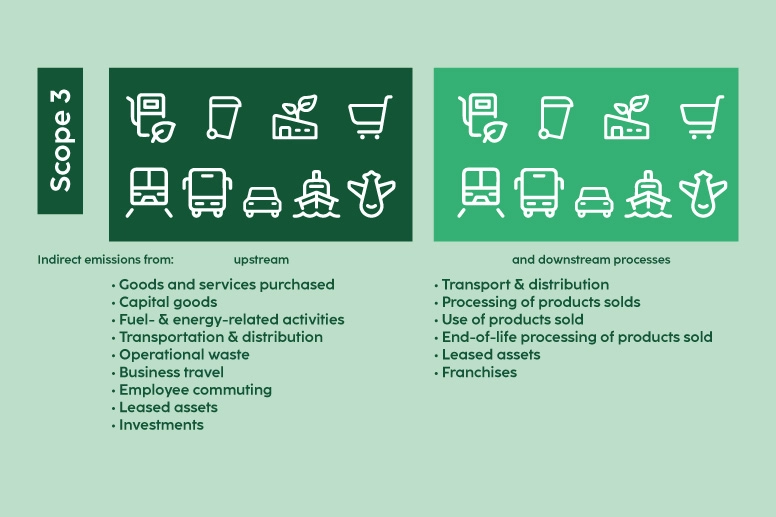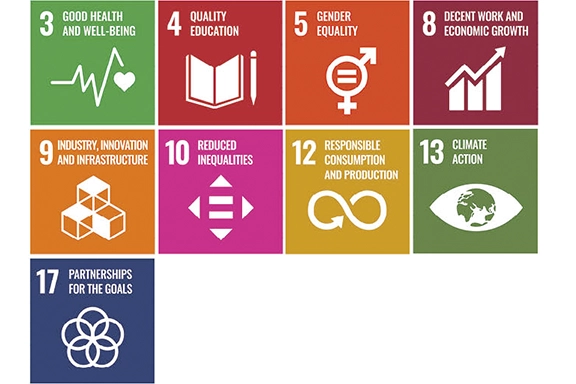Sustainability at Hama
`Liveable and fair conditions for people and the environment!Liveable and fair conditions for people and the environment!´
19 Jun 2024

Position & strategy
"Sustainability is the basis for a future worth living. It secures the ecological, social, but also the economic future, competitiveness and economic success.
Systematic defossilisation is our vision. As par of this, we are focusing on consistently increasing efficiency and utilising renewable energies and raw materials.
People are also at the centre of everything we do and we pay holistic attention to ensuring and complying with up-to-date human rights due diligence obligations for all employees in the company and in the value chain."
Christian Sokcevic, CEO

Our contribution to the SDG
Hama supports all of the United Nations Sustainable Development Goals. With our goals and actions, we can make a clearer contribution to the following nine Sustainable Development Goals.
Our areas of activity
Ethical business practices
We always strive to achieve sustainable growth through responsible and ethical behaviour, combined with a healthy corporate culture. Through our commitment to ethical business practices, we aim not only to meet our legal and ethical obligations, but also to be perceived as a trustworthy partner by all our stakeholders.
Climate and environment
We recognise that our actions have an impact on the environment and the climate. We have set a target to reduce our CO₂ emissions (Scope 1 and Scope 2) by 60% by 2030. We will work with our partners to develop solutions to minimise greenhouse gas emissions in our value chain (Scope 3). Sustainable product development and the promotion of the circular economy are other areas of focus for Hama.
Products and digitisation
We are committed to continuing to meet our customers' expectations for high quality products manufactured to the highest standards. The responsible use of resources with the aim of achieving a circular economy, as well as information security and data protection, are of paramount importance.
Employees
We believe in providing an attractive workplace for our employees. To this end, we are constantly developing our offers for mobile and healthy working and flexible working hours. We attach great importance to health and safety in the workplace and strive for a zero-accident strategy. Hama is committed to equal opportunities and aims to further increase the number of female managers.
Supply chain
We recognise that a sustainable supply chain is an essential part of our corporate responsibility. We aim to create economic, environmental and social benefits for all stakeholders in the supply chain. We also build strong relationships with our suppliers through appropriate risk management and qualification.
Social commitment
Our social commitment is a further contribution to sustainable development. Hama supports local sports and cultural activities as well as disadvantaged groups. Hama also encourages its employees to volunteer. Partnerships with charitable organisations are constantly being expanded.
Compliance
We are committed to fair business practices in compliance with human rights due diligence obligations. We are also committed to good working and living conditions and environmentally friendly behaviour along our value chain.
Declaration of Human RightsAn anonymised reporting office is also available to external persons for possible complaints and information on human rights or environmental risks or threats.
Whistleblower systemSustainable development - climate protection
Climate change presents us with particular challenges, which we are meeting by optimising our carbon footprint.
We use a detailed carbon footprint to record the greenhouse gas emissions caused and derive appropriate reduction targets. Emissions are divided into three scopes (see chart below):


Our current status
Hama is guided by the goal set at the 21st Climate Change Conference in Paris to limit the global temperature increase to 1.5°C. In our sustainability strategy, we have defined measures that are in line with the Paris Climate Agreement. For example, we aim to reduce our own greenhouse gas emissions (Scope 1 and Scope 2) by 60% by 2030. We are well on the way.
-
E-charging stations
Hama wants to offer a comprehensive charging infrastructure for electric vehicles and, as a first step, has set up ten charging stations, each with two 11 kW charging slots, at the logistics center of the company’s headquarters in Monheim.
-
Self-generated electricity / energy efficiency
- Since 2017, approx. 7% of the total power required has been generated by a solar installation with an output of 475.2 kWp
- Since 2014, three combined heat and power plantswith an electrical output of 140 kW have generated around 20% of the power required at the Monheim site
- In summer, an absorption chiller is used to generate cold air for the air conditioning in the buildings
- Gradual conversion to LED lighting and further savings achieved by installing motion detectors
-
More climate-friendly processes
- Increasing relocation of the packaging process to Germany further improves our carbon footprint
- Reduction in the proportion of the total transport volume occupied by air freight from 6% to 3% (during the period from 2016 to 2021)
- Inclusion of rail freight since 2016 and increase in the transport proportion to 3%
- Additional considerable reduction in waste and increase in recycling rates thanks to a modern, forward-looking waste management system

Sustainable development - products & packaging
As a leading brand manufacturer, we are aware of our great responsibility towards people and our environment. As an important contribution to the preservation of our livelihoods and in order to live up to this high level of responsibility, we place a special focus on the sustainability of packaging and products.
More about our sustainable productsSustainable development - supply chain
In order to implement responsible supplier management, it is essential to create transparency with regard to compliance with social and environmental standards. In this way, we can support our suppliers and service providers in further developing their expertise and sustainability performance. We demand that they observe the generally applicable labour standards in accordance with the ILO's basic principles and thus exclude child and forced labour, refrain from any form of discrimination, guarantee fair working conditions and ensure safe workplaces, freedom of association and protection of the environment. We also require our suppliers to demand that their own upstream suppliers and service providers comply with our standards and expectations.
Supplier Code of ConductAn anonymised reporting office is also available to external persons for possible complaints and information on human rights or environmental risks or threats.
Whistleblower systemAmfori membership
The amfori business association is committed to sustainable business worldwide. As a partner of the Business Social Compliance Initiative (BSCI), we define social values and principles that our suppliers must adhere to and which are reviewed through regular audits. In this way, we aim to improve social working conditions along the supply chain.






